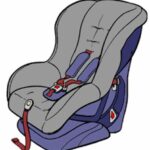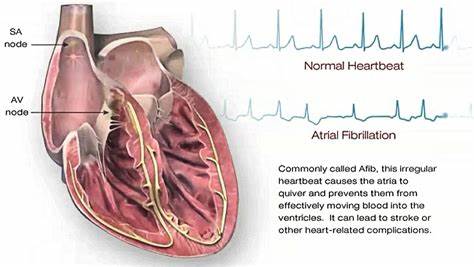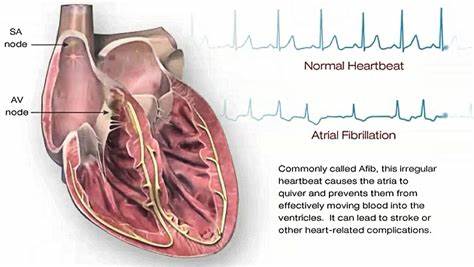Live Well Allegheny: Winter 2023 E-Update
More than 350 Live Well partners united to make Allegheny County healthy for all to live, learn, work and play!
The Fall update contains information to help make Allegheny County a healthier place for all. Please feel free to share.
Be sure to like and follow the Allegheny County Health Department on Facebook and Twitter to stay up-to-date on all ACHD news.
Live Well Allegheny Story
New Resources for Educators to Empower Vape-Free Youth
E-cigarettes (also called “vapes”) have been the most commonly used tobacco product among U.S. youth since 2014. The Centers for Disease Control and Prevention (CDC) has recently launched the Empower Vape-Free Youth campaign earlier this year to encourage middle and high school educators to speak with students about the risks of e-cigarettes and nicotine addiction. The campaign comes with resources for educators to help students avoid or quit vaping.
These resources are great tools for Live Well Schools and other partners. With the campaign, educators can access a fact sheet about vaping, a conversation card, and a variety of video resources that are all less than two minutes long.
The resources for Empower Vape-Free Youth can be found below:
- Empower Vape-Free Youth Fact Sheet
- Empower Vape-Free Youth Conversation Card
- All other resources can be found here
A goal of the Allegheny County Health Department’s Plan for a Healthier Allegheny is to reduce the rate of people who use tobacco products, including vaping. Check out the PA Quitline for resources to help quit using tobacco products. It is a free service that offers free coaching with no judgement. Call 1-800-QUIT-NOW or visit https://pa.quitlogix.org/en-US/Enroll-Now to Enroll Now!
Get Free, At Home COVID-19 Tests!
Every home in the U.S. is eligible to order an additional 4 free at-home tests beginning November 20. If you did not order tests this fall, you may place two orders for a total of 8 tests.
Your order of COVID tests is completely free – you won’t even pay for shipping.
This is excellent timing for the winter holidays, a time of year when we know that many people gather in larger groups indoors, increasing the likelihood of seeing more respiratory virus cases than at other times of the year.
Take an at-home test:
- If you begin having COVID-19 symptoms like fever, sore throat, runny nose, or loss of taste or smell, or
- At least 5 days after you come into close contact with someone with COVID-19, or
- When you’re going to gather with a group of people, especially those who are at risk of severe disease or may not be up to date on their COVID-19 vaccines
Go to COVID.gov to order your tests.
If you have any trouble doing so online, call 1-800-232-0233 or TTY: 1-888-720-7489. Please spread the word in your community!
You can voluntarily report positive or negative COVID-19 test results through MakeMyTestCount.org to help with public health efforts.
Live Well Allegheny Learning Collaborative Recaps
September Live Well Learning Collaborative 
In September’s Live Well Collaborative we learned about the basics of child passenger safety. Some key takeaways and resources from the speaker series included:
- PA Laws of Love – child passenger safety laws vary from state to state, the laws in Pennsylvania are listed below:
- Birth – 2 years – must be secured in a rear-facing seat until the child outgrows the maximum weight and height limits designated by the car seat manufacturer.
- Birth – 4 years – must be properly restrained in an approved child safety seat anywhere in the vehicle.
- 4-8 years– must be restrained in an appropriate booster seat.
- 8 years and older: must be in a seat belt.
- NHTSA Car Seats and Booster Recommendations – goes into further details about how to select the best car seat for your child from the National Highway Traffic Safety Administration
- Car Seat Loan Programs this resource is from the PA Traffic Injury Prevention Project (PA TIPP) and is funded by the PA Department of Transportation.
- Car Seat Check / Fitting Station Location – assistance is given on how to properly fit car seats to personal vehicles. There are Fitting Stations throughout Allegheny County that provide this free service. Use the search function in the link to locate a fitting station and schedule an appointment.
If you missed the live speaker series, you can watch September’s event here.
October Live Well Learning Collaborative
In October’s Live Well Collaborative we learned about the Rethink Your Drink Campaign. Some key takeaways and resources from the speaker series included:
- Sugary drinks are the leading sources of added sugars in the American diet.
- Free Rethink Your Drink Campaign Resources (found here):
- Rethink Your Drink Toolkit
- Live Well Allegheny Speaker Series: Rethink Your Drink Launch (April)
- Campaign materials request form
- Social Media Packet
- Campaign Videos
If you missed the live speaker series, you can watch October’s event here.
Live Well Allegheny Partner Wins
Bethel Park Farmers Market was nominated and made it to the “Top 5 Observer-Reporter Best of the Best for 2023”! The Bethel Park Farmers’ market offers visitors fresh, delicious, and healthy foods and drinks every Tuesday in season. Check them out at their website here.
Observer-Reporter Best of the Best for 2023”! The Bethel Park Farmers’ market offers visitors fresh, delicious, and healthy foods and drinks every Tuesday in season. Check them out at their website here.
Playful Pittsburgh Collaborative and Age-Friendly Greater Pittsburgh were interviewed by Talk Pittsburgh. They shared opportunities that both organizations provide to advocate for the critical impact that play has on the development of children. Watch the interview here.
If you’re a Live Well partner that would like to share a success story with us, send them to [email protected].
Healthier Holidays in 1-2-3!
If better health is the gift you want to give yourself this holiday season, try these tips to add more movement to your day and healthy foods to your plate.
1.Stay active.
Even a few minutes of moderate-intensity physical activity can deliver some health benefits and count towards reaching the recommendations.
2. Eat healthy.
Eating well supports muscles and bones, boosts immunity, helps the digestive system function, and helps with weight management among other health benefits. Good nutrition involves eating a variety of healthy foods. For examples of healthy eating for a healthy weight check out this page from the CDC.
3. Plan activities that don’t center around eating.
Here are some ideas for shifting the focus away from food during the holiday season:
- Volunteer in your community; it might turn into an activity you enjoy year-round.
- Try a seasonal activity such as ice skating or winter hiking.
- Make a “walk and talk” date with a friend or family member. Skip the blended coffee drink and explore an area that is new.
- Visit the museum or exhibit you’ve been wanting to see.
Rethink Your Drink Campaign Updates
 Rethink Your Drink is a campaign that promotes education on the effects of consuming sugar-sweetened beverages and to encourage healthier beverages choices. Materials are available to participate in the campaign through the use of our toolkit with activities, sharable social media messages, promotional water bottles and stickers.
Rethink Your Drink is a campaign that promotes education on the effects of consuming sugar-sweetened beverages and to encourage healthier beverages choices. Materials are available to participate in the campaign through the use of our toolkit with activities, sharable social media messages, promotional water bottles and stickers.
Check out our two newest Rethink Your Drink Campaign videos. In the fourth campaign video Devon Kroesche, Registered Dietitian Nutritionist gave recommendations on how to Rethink Your Drink. View the video here. In the fifth campaign video here, Maddie Putzi, a dietitian with the Allegheny County Health Department talks about the WIC program and how to Rethink Your Drink for your family.
The Borough of Emsworth kindly gave out more than 60 Rethink Your Drink water bottles, recipe cards, and written materials at their annual Halloween parade. It was a great success for the Borough and for our campaign. The kids were thrilled to get new water bottles alongside their many other treats! Thanks Emsworth!
Allegheny County Health Department Updates
CDC BOLD Grant Press Release
The Allegheny County Health Department (ACHD) was selected as one of 43 recipients nationally of the Centers for Disease Control’s BOLD grants supporting public health programs to address Alzheimer’s disease and related dementias (ADRD), receiving $1.85 million in funding over the next five years. Allegheny County is one of the oldest regions in the United States, with 19.7% of the population 65 years or older.
Over five years, the coalition will collaborate to improve health disparities, educate communities, health care providers, and other professionals and increase community-clinical access. Developing and implementing an Alzheimer’s disease and related dementias strategic plans includes various activities ranging from community outreach events, professional educational events, and dissemination of information and resources. The plan will include input from grassroots and faith-based organizations working on community health and education in Allegheny County.
Read more from the official press release here: CDC BOLD Grant Press Release.
CDC REACH Grant Press Release
The Centers for Disease Control and Prevention (CDC) has awarded a second $5.5 million Racial & Ethnic Approaches to Community Health (REACH) grant to the Allegheny County Health Department (ACHD). The program provides funds to build strong partnerships to improve health, prevent chronic disease and reduce racial and ethnic health disparities in selected communities. Along with funding, the CDC provides expert support to REACH recipients.
In Allegheny County, the Live Well Allegheny REACH Program is a collaboration between ACHD and many community partners focused specifically on improving health outcomes for Black and African American residents. In addition to ACHD programs and clinics, partners include Allegheny County Economic Development, Food Trust, UPMC Children’s Hospital of Pittsburgh, Just Harvest, Greater Pittsburgh Community Food Bank, Faith-Based Health Collaborative, Royally Fit, Pittsburgh Food Policy Council, Healthy Start Center for Urban Breastfeeding, Pittsburgh Black Breastfeeding Circle, Black Women’s Policy Center, Bethany Community Ministries, the Black Equity Coalition, and the Urbankind Institute.
With the funding awarded by the CDC REACH Program, ACHD and its many partners plan to:
- Improve breastfeeding rates by linking even more Black mothers to breastfeeding information, education and support;
- Increase trail mileage, access to existing trails and improve the built environment to encourage outdoor activities by continuing to partner with the Redevelopment Authority of Allegheny County;
- Increase access to fresh fruits and vegetables using voucher programs for things like farmers markets and produce prescription programs to create a clinical linkage to more nutritious food; and
- Increase vaccination rates by improving access to vaccination opportunities.
The Live Well Allegheny REACH Program focuses on the following municipalities and neighborhoods:
Clairton, Duquesne, McKeesport, North Braddock, North Versailles, Rankin and Wilkinsburg and the neighborhoods of the Northside, Homewood/Larimer, Hill District, Garfield, Hazelwood, West End and the Hilltop in the City of Pittsburgh.
Read more from the official press release here: CDC REACH Grant Continued Funding Press Release.
Chronic Disease Spotlight
According to the CDC, six in ten adults in the U.S. have a chronic disease and four in ten adults have two or more chronic diseases. Each month this section will highlight a common chronic disease and provide educational resources. This month the focus is on risk factors that can be linked to chronic disease.
 Atrial Fibrilation
Atrial Fibrilation
Atrial Fibrillation, or AFib, is the most common type of treated heart arrhythmia. An arrhythmia is when the heart beats too slowly, too fast, or in an irregular way.
When a person has AFib, the normal beating in the upper chamber of the heart is irregular, and blood doesn’t flow as well as it should from the atria to the lower chambers of the heart. AFib may happen in brief episodes, or it may be a permanent condition.
Symptoms
Some people who have AFib don’t know that they have it and don’t have symptoms. Others may experience one or more of the following symptoms:
- Irregular heartbeat
- Heart palpitations
- Lightheadedness
- Extreme fatigue
- Shortness of breath
- Chest pain
Risk Factors:
- Older age
- High blood pressure
- Obesity
- European ancestry
- Diabetes
- Heart failure
- Ischemic heart disease
- Hyperthyroidism
- Chronic kidney disease
- Moderate to heavy alcohol use
- Smoking
- Enlargement of the chambers on the left side of the heart
Additional resources:

